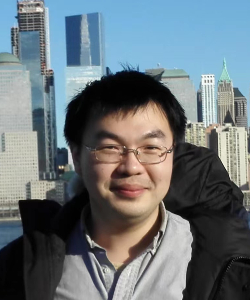Recording: https://disk.pku.edu.cn:443/link/BC2A84C65A65A46B5303EFAE1C4212AA
Valid Until: 2026-06-30 23:59
Abstract: A complex hyperplane complement is a topological space obtained by removing a collection of complex codimension one affine hyperplanes from C^n (or a convex cone of C^n). Despite the simple definition, these spaces have highly non-trivial topology. They naturally emerge from the study of real and complex reflection groups, braid groups and configuration spaces, and Artin groups. More recently, the fundamental groups of some of these spaces start to play important roles in geometric group theory, though most of these groups remain rather mysterious. We introduce a geometric way to understand classes of fundamental groups of some of these spaces, by equivariantly “thickening” these groups to metric spaces which satisfy a specific geometric property that is closely related to convexity and non-positive curvature. We also discuss several algorithmic, geometric and topological consequences of such a non-positive curvature condition. This is joint work with D. Osajda.
Bio: Jingyin Huang is an assistant professor and the Alice Louise Ridenour Wood Chair in Mathematics at Ohio State University. He completed his PhD at New York University in 2015. He is an expert in geometric group theory, which studies the deep connections between the algebraic properties of groups and the geometry of spaces they act on. His research focus on certain rigidity properties of discrete groups (quasi-isometric rigidity, measure equivalence and orbit equivalence rigidity), and the geometry of non-positively curved spaces and groups. He has been awarded a 2022 Sloan Research Fellowship.
